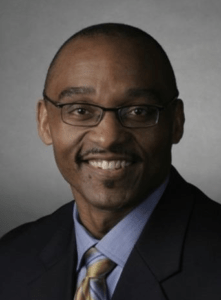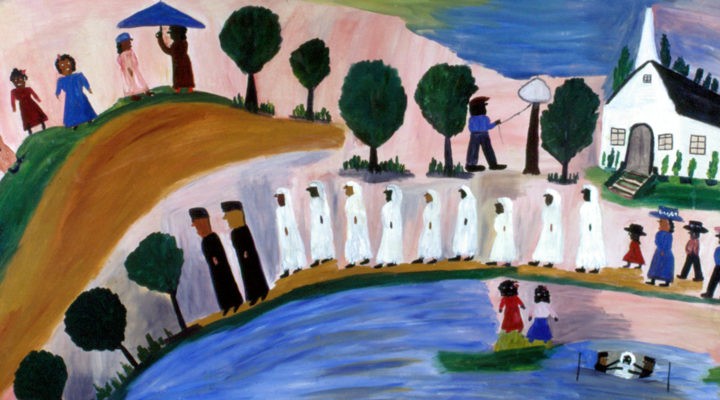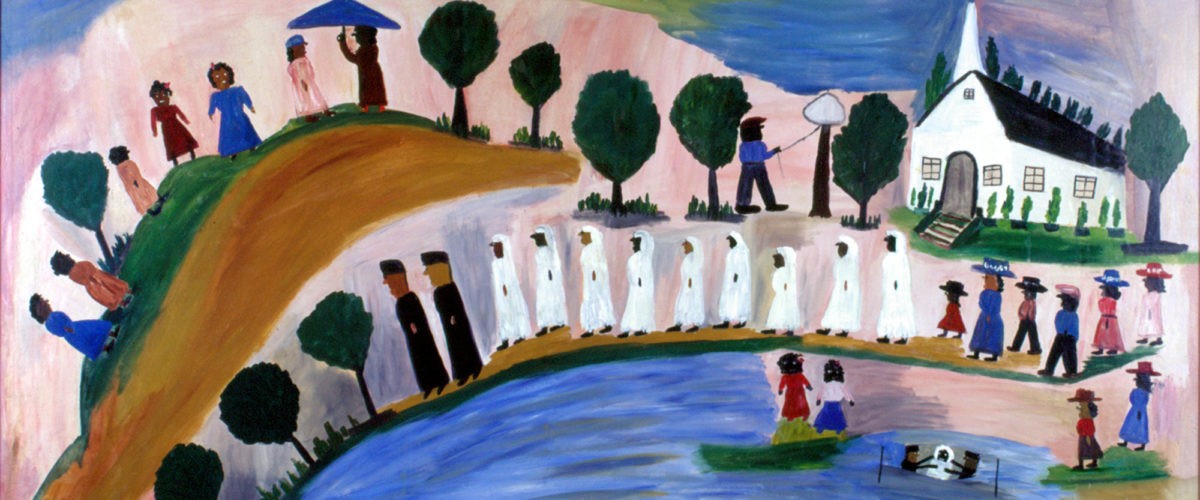Baptism services should not be polite affairs or genteel ceremonies. Instead, they should be provocative political statements that agitate more than comfort and call believers to action, according to Brad Braxton.
“Baptism services should not be polite. On the contrary, they should create a guttural awareness in those about to be baptized and others that following God at times will be costly,” Braxton said in a lecture presented by Louisville Presbyterian Seminary in Kentucky.
The cost of following Jesus in baptism can be physical and even fatal, he said, referencing cases of police brutality and reports of rising vigilantism.

Brad Braxton
“Baptism is, in the most radical sense, a willingness to join Jesus in death,” he declared. “I remind families and the candidates for baptism that when Jesus stepped into the Jordan to be baptized, he signed his death certificate.”
Braxton is founding senior pastor of the Open Church of Maryland, is a former senior pastor of Riverside Church in New York City and previously taught at Southern Methodist University, Vanderbilt University and Wake Forest University. He is an ordained Baptist minister.
His Nov. 4 lecture topic was “Troubling Waters: Black Theology, Baptism and Black Lives Matter.”
Baptism should agitate more than comfort in order to motivate and inform the kind of cultural and political activism exemplified by the Black Lives Matter movement — just as the rite launched Jesus’ revolutionary ministry to serve the oppressed in his time, said Braxton, who also serves as chief diversity, equity and inclusion officer at St. Luke’s School in New York. “The embodied ritual of baptism can raise awareness about just or unjust political arrangements and the way those arrangements devalue our Black lives in particular.”
Those submitting to baptism should be reminded of the social justice responsibilities and potential personal consequences that come with being a follower of Christ, he said.
He offered a litany of Christians whose discipleship was life-ending, including the four schoolgirls killed in the 1963 bombing of 16th Street Baptist Church in Birmingham, Ala., and the nine Christians gunned down during a Bible study at Mother Emanuel AME Church in Charleston, S.C. in 2015. Both crimes were committed by white supremacists.
Many others could and should be added to the list, and baptisms are the time and place to do so, Braxton said. “At baptisms, we should call the names of those who have been martyred in the movement for righteousness and especially in the ongoing movement to affirm that Black lives matter.”
“At baptisms, we should call the names of those who have been martyred in the movement for righteousness.”
Adding those names can be challenging because it is an ever-growing list and because many of the names are unknown, he added. “The seeming inability to compile comprehensive lists of Black people killed by law enforcement or vigilante justice is damning.”
Braxton said this justice-oriented perspective of baptism and faith is an outgrowth of the political theology Jesus preached and lived in his ministry — and that led to his execution as a seditionist.
But this concept didn’t start with Jesus and the Roman Empire, he said, noting Scripture is replete with examples of God demanding justice for the oppressed — an inherently political concern.
“So, it is a matter of social justice and through baptism Jesus says, ‘I join this populist political movement whereby God’s justice will be manifest for all God’s children, not just for the powerful and elite.”
“If we are going to change the world in light of our baptismal identity … don’t just talk about the things you want to do, do the things you want to do.”
Many Christians think the term “political theology” is contradictory, he acknowledged. “Instead of oxymoronic, political theology critiques the ironic nature of versions of Christianity which seek to domesticate, if not eradicate, the political symbols of Christianity. The framework of political theology might assist us in revitalizing our baptismal theology.”
Braxton urged people of faith to find ways to translate political theology into action. “If we are going to change the world in light of our baptismal identity … don’t just talk about the things you want to do, do the things you want to do.”
Revamping baptismal practices in the church could be a place to start connecting faith to Black Lives Matter and other social justice causes, he advised. “Rituals are a powerful language … by which people express their deepest convictions but can lose efficacy if not conversant with contemporary social issues. Baptism is a liturgical act that can heighten our social and political consciousness.”
Related articles:
‘Doesn’t anyone want to be baptized anymore?’ The ‘tangibilifying’ grace of baptism | Opinion by Bill Leonard
Regathering for worship, processing our pain and remembering our baptism | Opinion by Carol McEntyre


